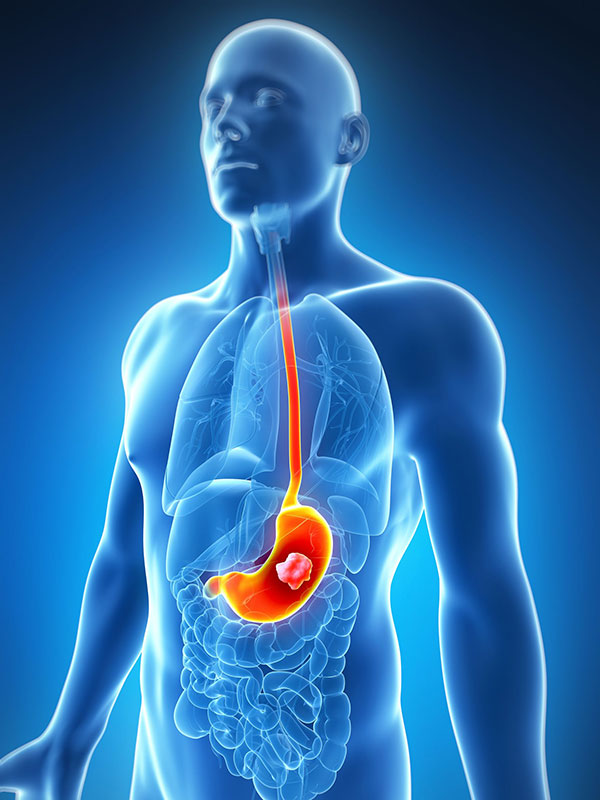The term stomach cancer describes the pathological condition in which stomach cells become malignant and grow uncontrollably forming a tumor. Different types of cancer can emerge in the stomach. The most common of these is adenocarcinoma, which begins in cells of the gastric mucosa (95%), followed by lymphoma and leiomyosarcoma. Other types of gastric cancer emerge much less frequently.
It affects people over 55, but can also emerge in younger people. It is estimated that its frequency in men is twice as high as in women. Its emergence is higher in the countries of the Far East, Latin America and Eastern Europe, most likely due to the type of diet. In contrast, Western Europe, America, Canada and Australia have seen a significant decline in the last 30 years.
Certain predisposing factors are blamed for the development of stomach cancer. They are divided into exogenous and endogenous.
Exogenous include smoking, eating habits (smoked, fried, alcoholic, salted fish, pickles), increased water nitrates and low intake of vitamins A, B and C.
Endogenous factors include:
- Positive family history
- Blood group A
- Helicobacter pylori infection
- Chronic atrophic gastritis type A
- Adenomatous polyps of the stomach larger than 2 cm
- Intestinal metaplasia of the gastric mucosa, which is the result of reflux of duodenal contents into the stomach
- The stump of the operated stomach.
The main problem of stomach cancer remains the delayed diagnosis because the initial symptoms of the disease are mild, indefinite or even non-existent.
The disease can manifest with the following symptoms: indigestion, anorexia, epigastric pain, nausea, vomiting, dysphagia, gastrorrhagia (haematemesis or black stools), weight loss, loss of strength and aversion to certain foods (mainly meat).
The diagnosis of stomach cancer is made by gastroscopy, which provides the possibility of obtaining biopsies from the suspected lesion. CAT scan and MRI scan help to assess the expansion of the disease to the lymph nodes or other organs.
The treatment is mainly surgical. The other methods (chemotherapy, radiotherapy or a combination thereof) can be used complementally or palliatively in non-surgical cases.
Stomach cancer surgery is gastrectomy, which seeks radical resection of the tumor with extensive lymph node dissection. Gastrectomy can be a subtotal gastrectomy (located in the tumor in the antrum or pylorus), a proximal gastrectomy (located in the tumor in the fornix or in the heart of the stomach) and a total gastrectomy (in cancer of the body, fornix or diffuse stomach cancer).
Palliative procedures are simple gastrectomy (in cases where the cancer is resectable but has already metastasized to the lymph nodes and other organs), simple gastroenterostomy (when it causes obstruction of the pylorus) and jejunostomy only to feed the patient in inoperable cancer.
 English
English  Ελληνικά
Ελληνικά 

